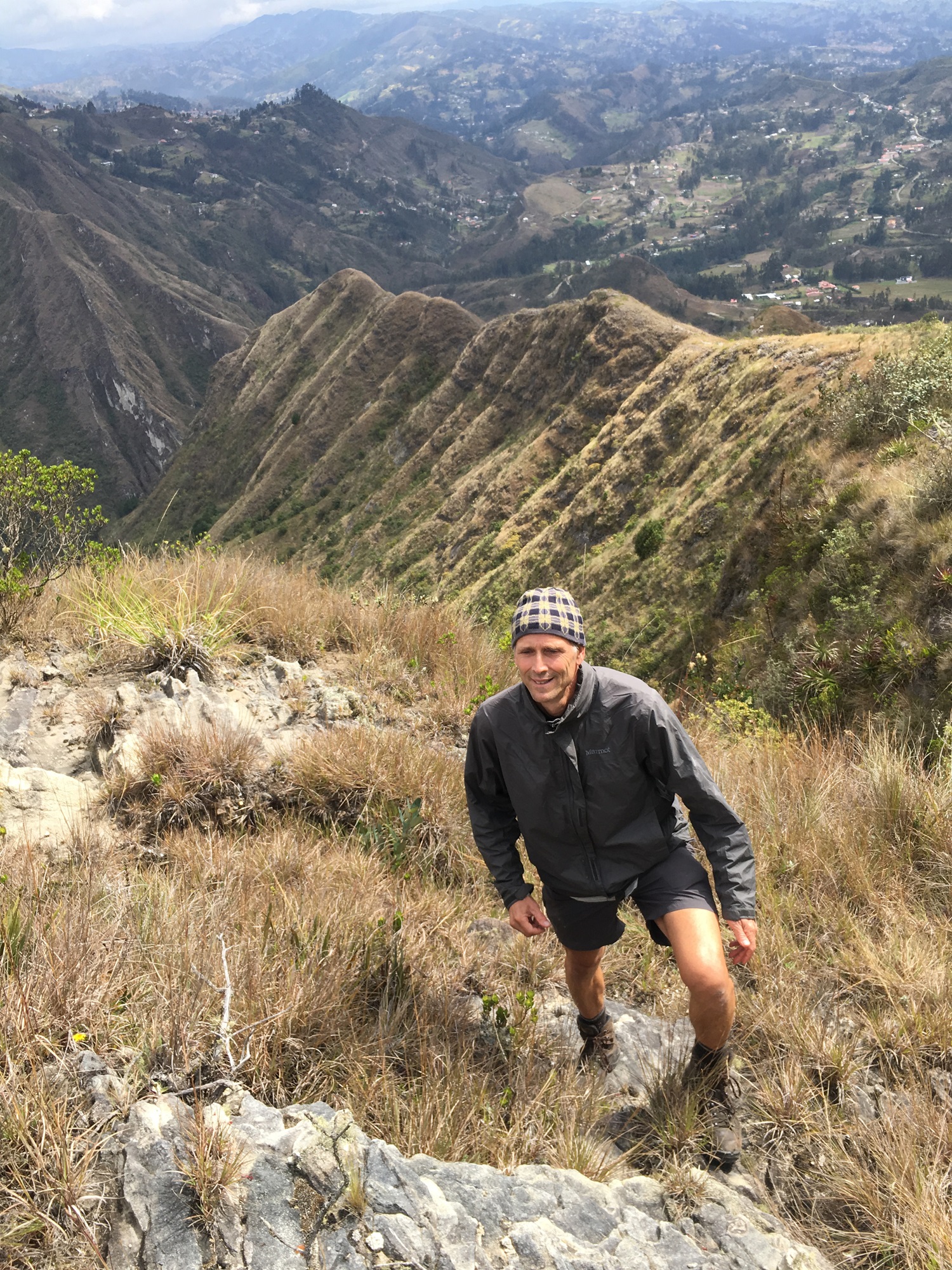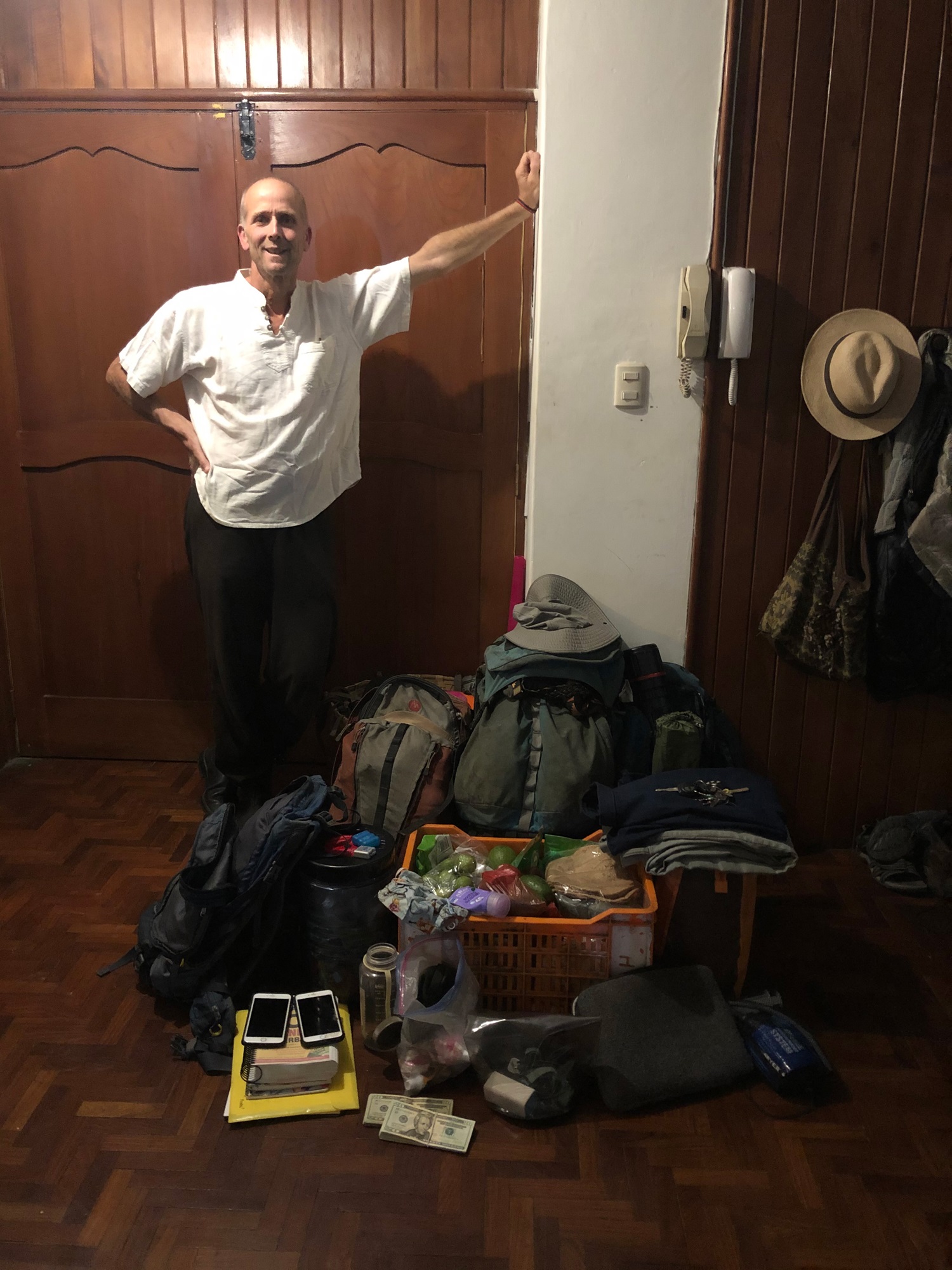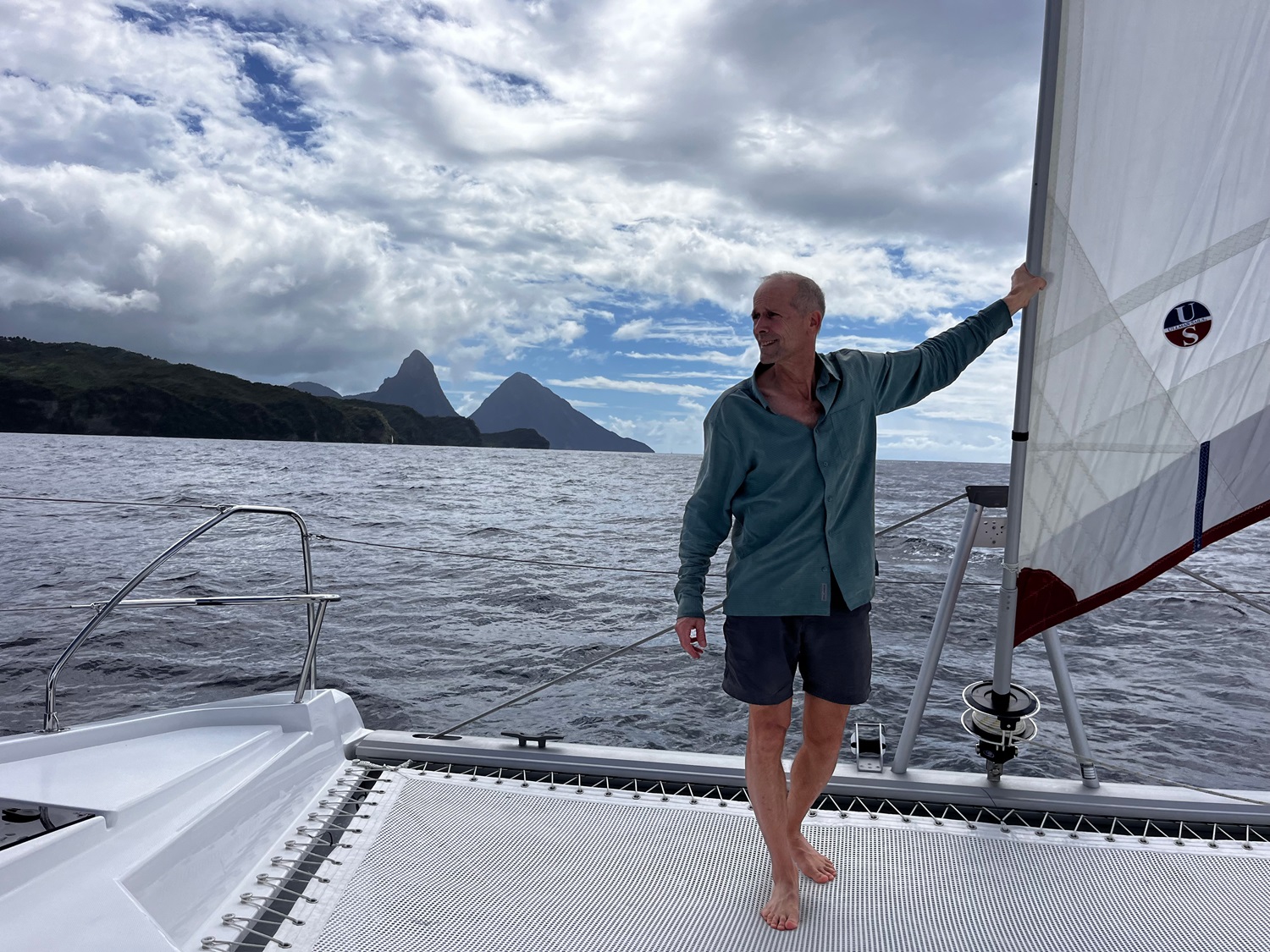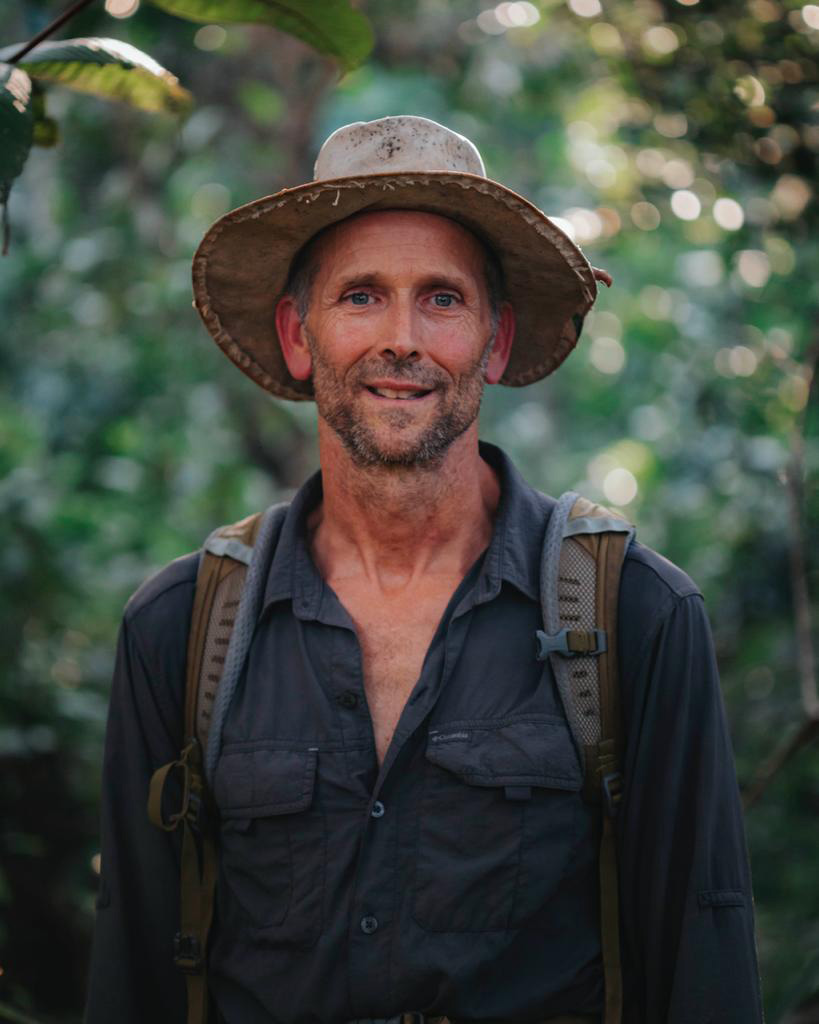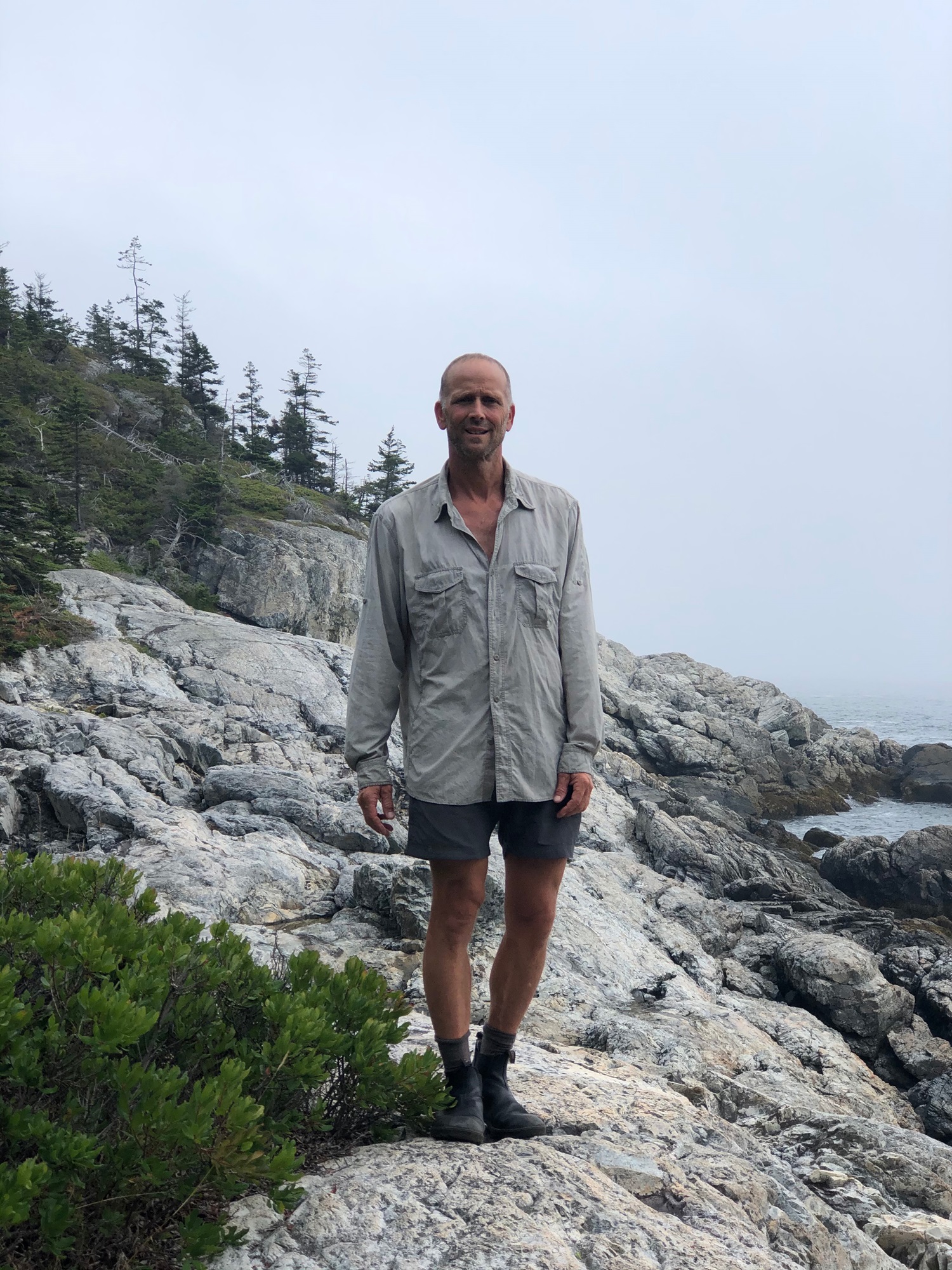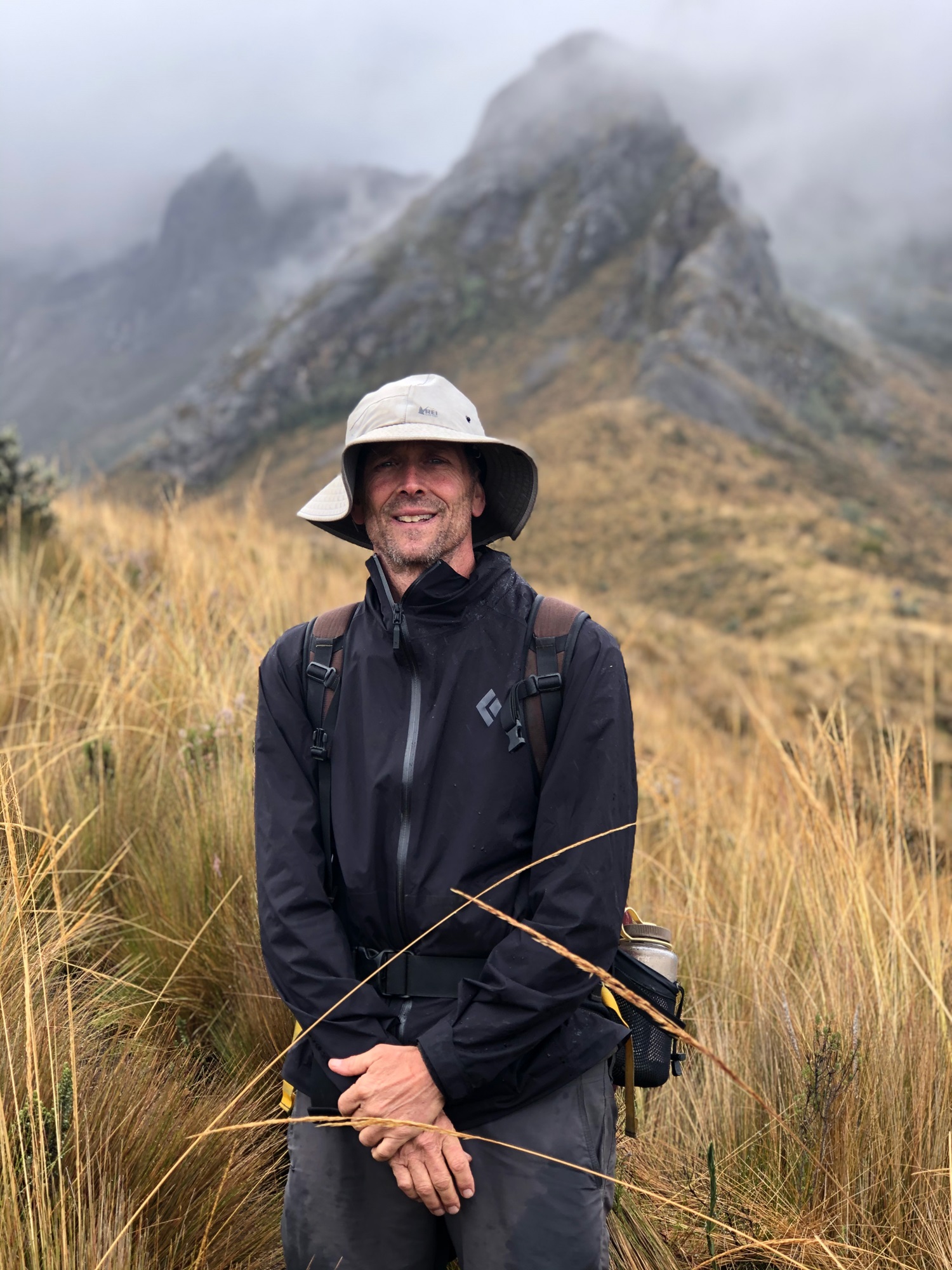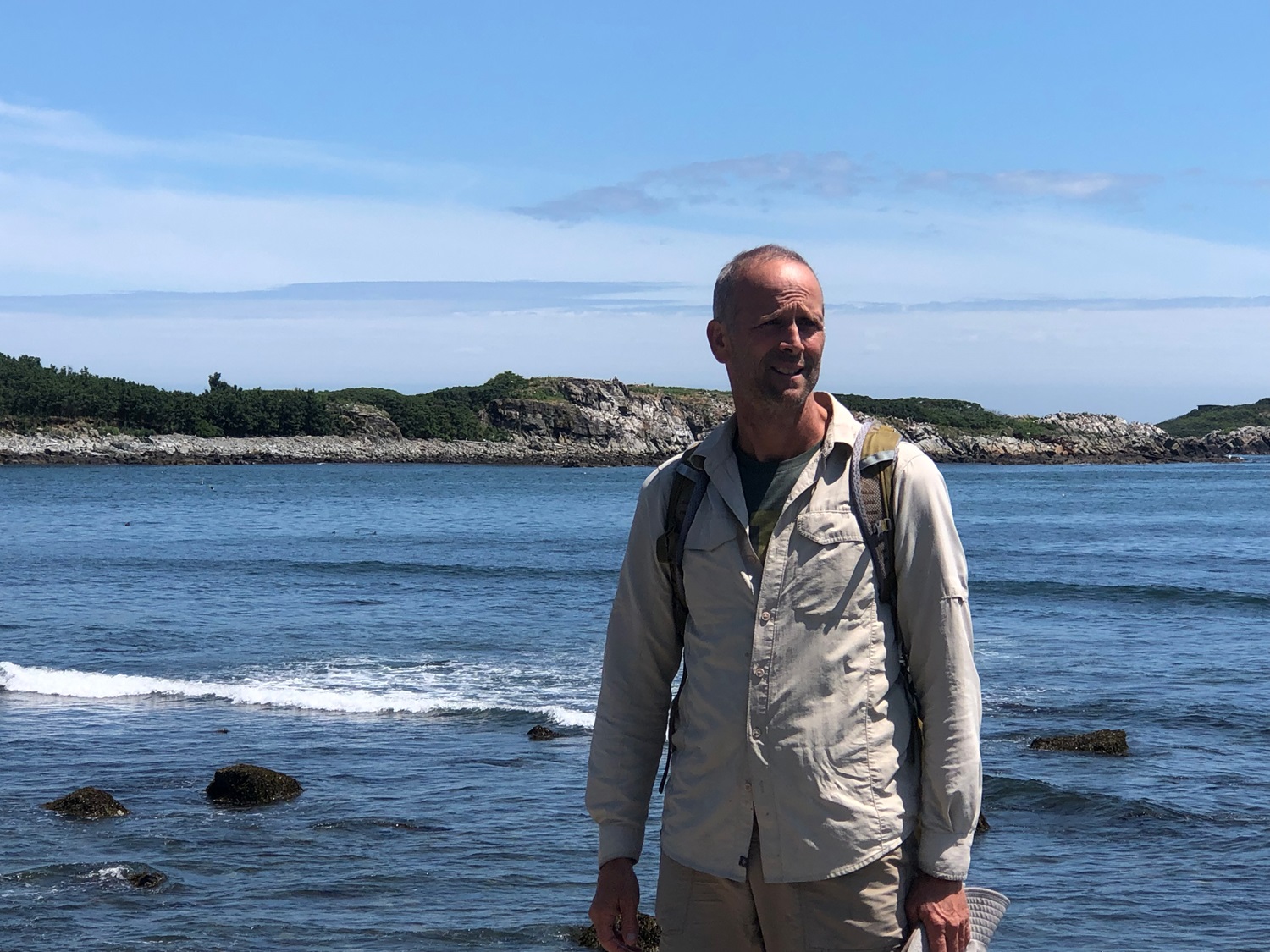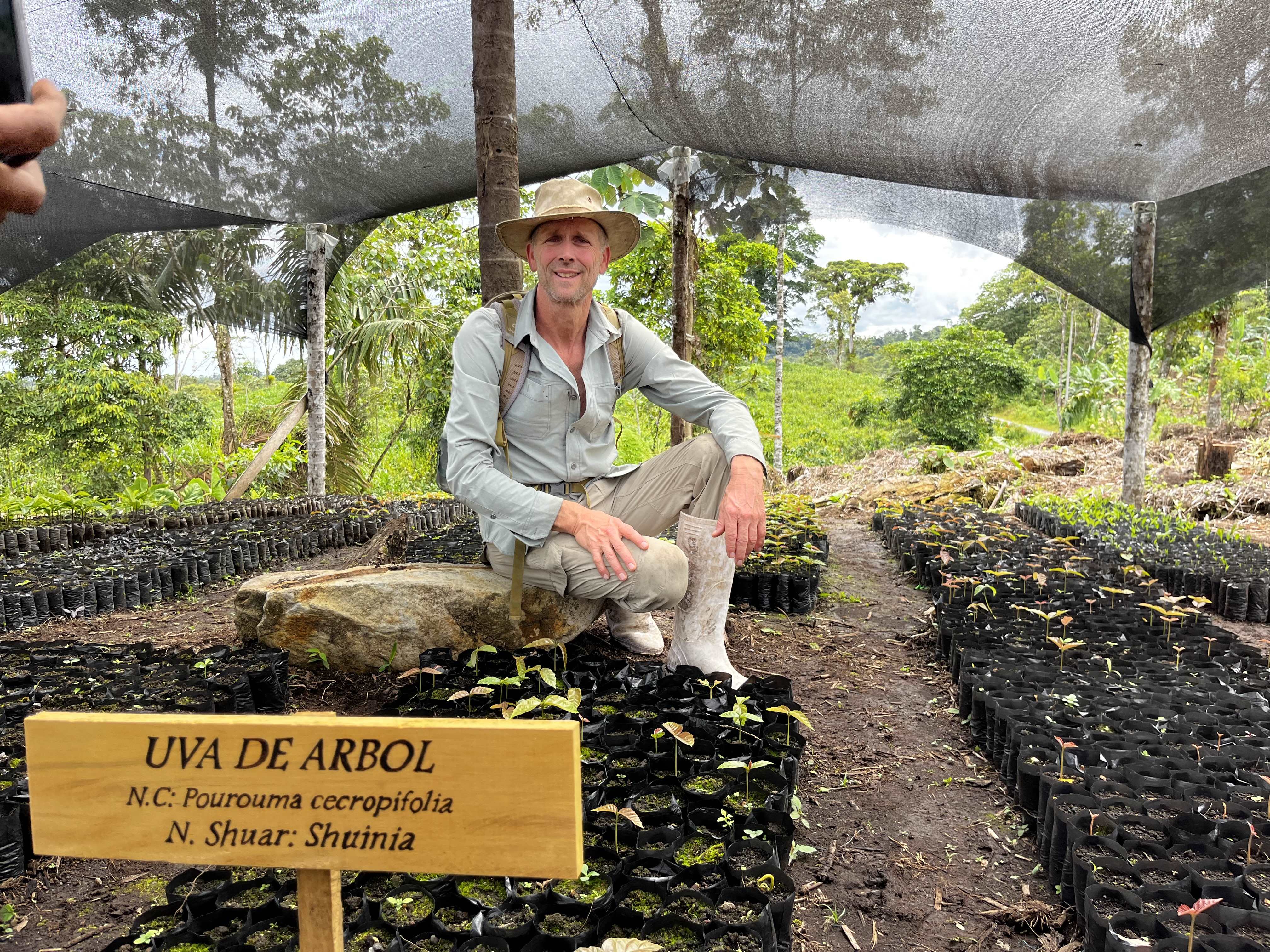
About Adam Gebb
Chief Conservation Strategist & Executive Director, Andes Amazon Conservancy
Adam Gebb is an environmental strategist recognized for innovative conservation solutions that merge ecological science with Indigenous leadership. As Executive Director of the Andes Amazon Conservancy, he works alongside Indigenous nations in Ecuador to secure wildlife migration corridors that reconnect the Amazon rainforest with the Andes Mountains. His approach emphasizes a new paradigm of connectivity, one that strengthens biodiversity, community resilience, and food sovereignty at the same time.
With more than three decades of experience in wildlands conservation, Adam has led pioneering research on wildlife migration networks and biocorridors, while developing strategies that protect ecosystems without displacing human communities. His work is grounded in collaboration, blending ahead of today's science concepts with traditional ecological knowledge, and has shaped conservation efforts throughout the Andes–Amazon region.
Early Life & Education
Raised in New York City, Adam originally pursued a degree in Business Administration with a focus on International Marketing at Northeastern University. But a deeper calling shifted his path toward conservation. In 1989, he studied ethno-ecology and tropical ecology at San Francisco State University, a program that led him to northern Thailand.
There, Adam witnessed firsthand the gap between government-driven conservation policies and the needs of Indigenous peoples. That formative experience reshaped his worldview, convincing him that durable conservation must be built in partnership with those who have stewarded their homelands for generations. This principle has since guided his career.
Work in the Andes & Amazon
In 2018, Adam relocated to Ecuador to launch the Andes Amazon Conservancy. The organization works with Shuar, Kichwa, Shiwiar, and Sapara nations to protect some of the most biodiverse rainforests on Earth while human populations grow. Under Adam’s leadership, the Conservancy is spearheading the creation of a 300-kilometer wildlife migration corridor, designed to reweave landscape connectivity between the lowland Amazon and the Andean highlands.
Redefining Landscape Connectivity
Adam is advancing a broader definition of landscape connectivity, one that moves beyond conserving wildlife habitat in isolation. His vision interlinks three priorities:
Wildlife migration routes as essential ecological pathways.
Food sovereignty as a foundation for wildlife and human community well-being.
Protection of freshwater resources as the foundation for both people and ecosystems.
This integrated model positions migration networks as the ecological backbone of resilient food systems, ensuring that biodiversity conservation and human survival remain inseparable.
Research & Advocacy
Over the past 30 years, Adam has directed environmental studies and advocacy initiatives across the Americas. His research in the Ecuadorian Amazon has highlighted the movement of entire forest communities and offered solutions to the ecological pressures of deforestation and development. His findings have influenced regional conservation policies and contributed to the global dialogue on ecological resilience in the face of climate change.
Personal Passions
Beyond his professional work, Adam is a lifelong explorer of wild landscapes. He has spent more than 40 years guiding backpacking, kayaking, and backcountry skiing expeditions around the world. His skills in wildlife tracking, ecological mapping, and sustainable forestry have directly shaped his conservation strategies. In his personal time, he enjoys sailing and organic gardening.
Adam Gebb is an environmental strategist recognized for innovative conservation solutions that merge ecological science with Indigenous leadership. As Executive Director of the Andes Amazon Conservancy, he works alongside Indigenous nations in Ecuador to secure wildlife migration corridors that reconnect the Amazon rainforest with the Andes Mountains.
His approach emphasizes a new paradigm of connectivity, one that strengthens biodiversity, community resilience, and food sovereignty at the same time.With more than three decades of experience in wildlands conservation, Adam has led pioneering research on wildlife migration networks and biocorridors, while developing strategies that protect ecosystems without displacing human communities. His work is grounded in collaboration, blending ahead of today's science concepts with traditional ecological knowledge, and has shaped conservation efforts throughout the Andes–Amazon region.
Early Life & Education
Raised in New York City, Adam originally pursued a degree in Business Administration with a focus on International Marketing at Northeastern University. But a deeper calling shifted his path toward conservation. In 1989, he studied ethno-ecology and tropical ecology at San Francisco State University, a program that led him to northern Thailand.There, Adam witnessed firsthand the gap between government-driven conservation policies and the needs of Indigenous peoples. That formative experience reshaped his worldview, convincing him that durable conservation must be built in partnership with those who have stewarded their homelands for generations. This principle has since guided his career.Work in the Andes & AmazonIn 2018, Adam relocated to Ecuador to launch the Andes Amazon Conservancy. The organization works with Shuar, Kichwa, Shiwiar, and Sapara nations to protect some of the most biodiverse rainforests on Earth while human populations grow. Under Adam’s leadership, the Conservancy is spearheading the creation of a 300-kilometer wildlife migration corridor, designed to reweave landscape connectivity between the lowland Amazon and the Andean highlands.Redefining Landscape ConnectivityAdam is advancing a broader definition of landscape connectivity, one that moves beyond conserving wildlife habitat in isolation. His vision interlinks three priorities:Wildlife migration routes as essential ecological pathways.Food sovereignty as a foundation for wildlife and human community well-being.Protection of freshwater resources as the foundation for both people and ecosystems.This integrated model positions migration networks as the ecological backbone of resilient food systems, ensuring that biodiversity conservation and human survival remain inseparable.Research & AdvocacyOver the past 30 years, Adam has directed environmental studies and advocacy initiatives across the Americas. His research in the Ecuadorian Amazon has highlighted the movement of entire forest communities and offered solutions to the ecological pressures of deforestation and development. His findings have influenced regional conservation policies and contributed to the global dialogue on ecological resilience in the face of climate change.Personal PassionsBeyond his professional work, Adam is a lifelong explorer of wild landscapes. He has spent more than 40 years guiding backpacking, kayaking, and backcountry skiing expeditions around the world. His skills in wildlife tracking, ecological mapping, and sustainable forestry have directly shaped his conservation strategies. In his personal time, he enjoys sailing and organic gardening.
